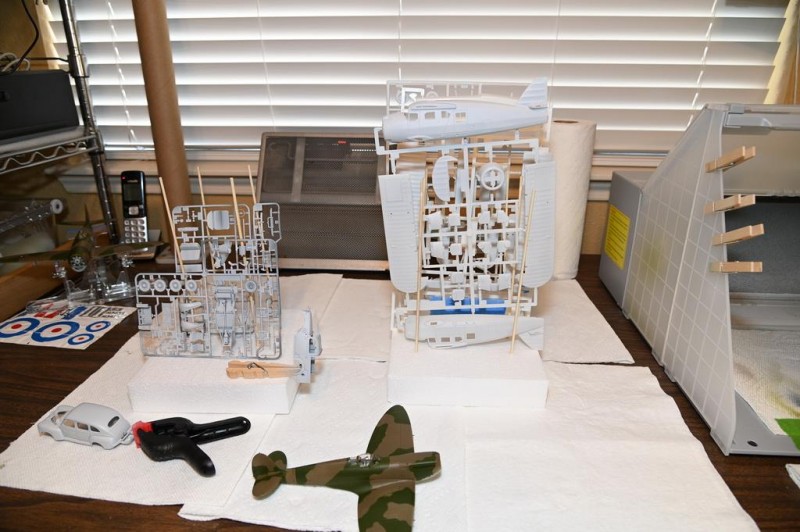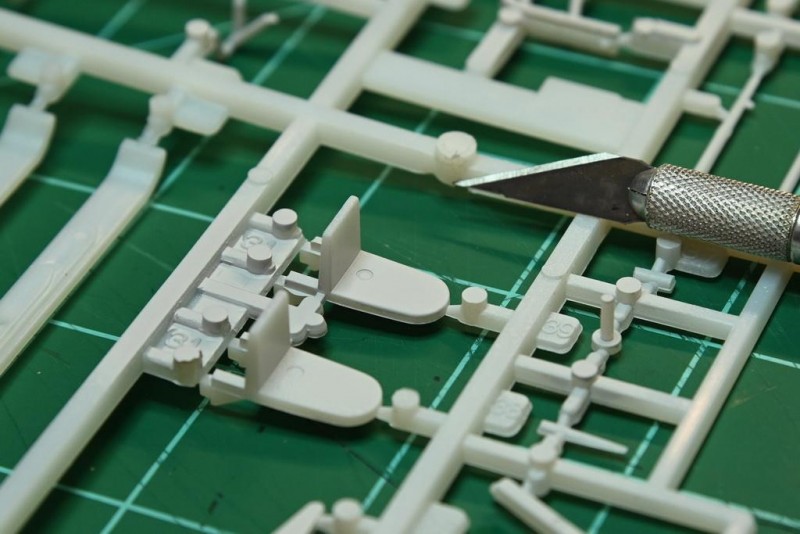This article is part of a series:
- The Day the Music Died – The Glenn Miller Story Intro
https://imodeler.com/groups/imoder-at-the-movies-1964926360/forum/topic/the-day-the-music-died-the-glenn-miller-story/
- The Day the Music Died – Part 2: The Aircraft
- The Day the Music Died – Part 3: The Diorama.
https://imodeler.com/groups/imoder-at-the-movies-1964926360/forum/topic/the-day-the-music-died-part-3-the-diorama/
I’ve committed to at least two builds for the ‘iModeler at the Movies’ group build. I’ve decided to start with this one, it being the more difficult to accomplish, or so that is my thinking. Time will tell. Check out the first topic above to catch up with the background if you have not seen it.
Tip of the hat to David Leigh-Smith @dirtylittlefokker for organizing this awesome group. Do yourself a favor and check it out, it promises to be an Epic adventure!
The Premise
Depict the scene when Glenn Miller was last seen before departing England for France.
Major Miller spent the last night before his disappearance at Milton Ernest Hall, near Bedford. On December 15, 1944, he boarded, with Lt. Col. Baessell a C64 Norseman (44–70285) piloted by F/O Stuart Morgan. The plane departed from RAF Twinwood Farm in Clapham, on the outskirts of Bedford on Runway 23 at 1:55 p.m. British Summer Time, and disappeared while flying over the English Channel.
The Build
I plan on building the Aircraft Major Miller disappeared in before departure, the C64 Norseman. The build will include several ground vehicles and a semblance of the Twinwood Control Tower.
1/48 Modelcraft / Taka Noorduyn Norseman
The only offering of the Norseman in 1/48 scale is from Modelcraft, the re-box of the Taka kit in 1995 (now out of production). It took some time, but I was able to secure (2) kits, a no. 48-001 and 48-003. Both kits are identical, just re-boxed with different Decals. For further information and history on the Norseman, refer to the first Article in this series.
Let's look at what’s inside the box. The kit provides for 3 versions, A – Land based with wheels, B- Water based with floats and C – Land based with skis. Parts are provided on 3 sprues molded in white and 1 clear sprue. The white sprues are very thick, with the gates being anywhere from 1/8” to 5/16” thick or 3 to 4 cm. There is a little flash and an abundance of ejector pin marks. Some are in hidden spots and some are not. Putty/filler will be required.
The instructions look like they were copied from a master, one must make sure that they thoroughly review these before starting the kit since there are differences in versions and Military/Civilian aircraft. Here’s a look at the front/back pages. There are no recommendations for paint or decal placement.
The main sprues:
In preparation for starting this kit, I decided to apply a coat of primer. Using Vallejo Grey Primer Acrylic Polyurethane. I was hoping to cut down on some of the translucence of the white, the grey helped but was not as dark as I was expecting.
-

1. Primed some of the vehicles to be included in the Diorama
2. A very light grey, but it did help with the translucence of the pieces.
Here is a close up showing the thickness of the sprues and some of the poorly placed ejector pins.
-

1. Ejector marks on the seat backs
Stay tuned, more to come………….
James B